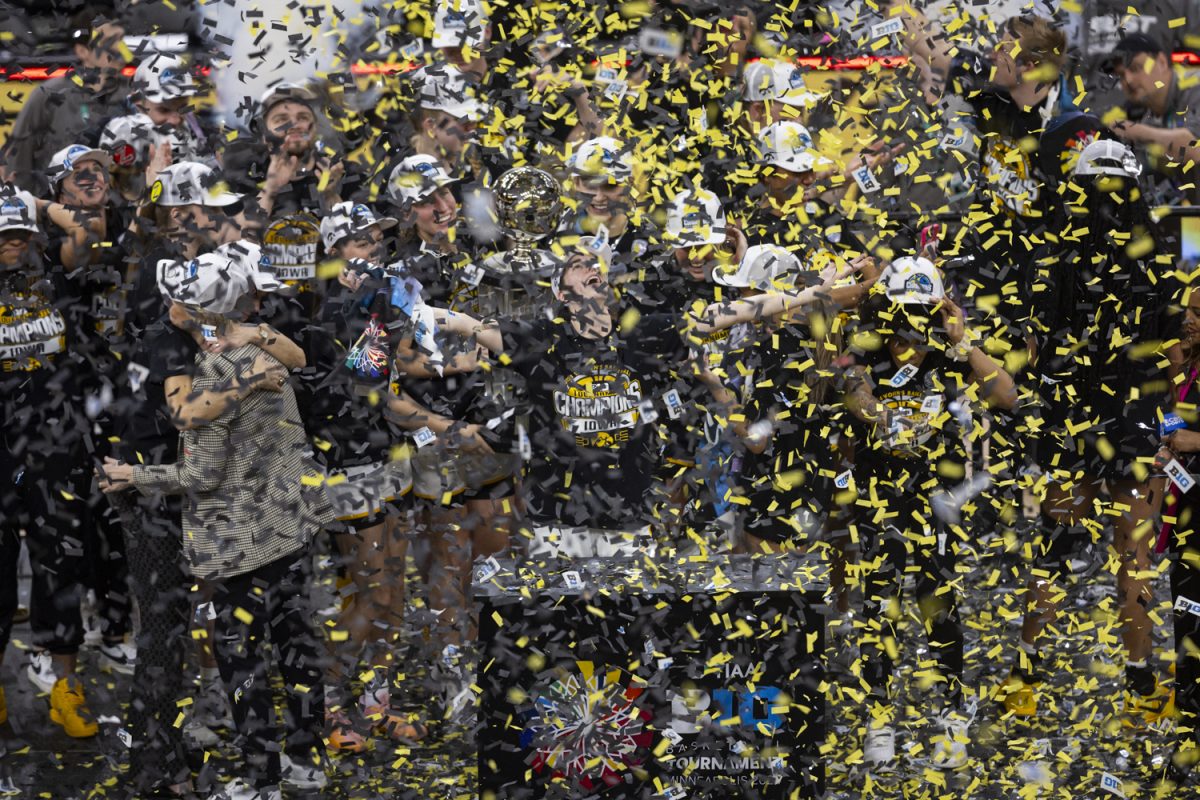UI President Sally Mason charged us last year to mobilize a campuswide effort — in collaboration with community members — to change the culture of high-risk drinking.
At stake is the future of our students. Their future ought not be shortened or impaired by the terrible personal and academic consequences of high-risk drinking.
Excessive consumption has become a rite of passage in the high-school and college years. It is heavily influenced by peer pressure. Approximately half of our students arrive at UI with habits of excessive drinking. Today, the proportion of our students who engage in high-risk drinking is much greater than the national collegiate average. The blood-alcohol concentration of students referred for substance abuse treatment is at an all-time high.
High-risk drinking is everybody’s problem. Promoting alcohol safety is everybody’s responsibility. It’s the responsibility of students, their parents, faculty, staff, administrators, bar owners, and community residents.
So what can we do? Any strategy for reducing out-of-control consumption requires reducing the demand and supply of alcohol.
The UI is working to reduce demand. In addition to required online alcohol training, we’re offering optional alcohol-safety classes to at-risk students. We want to expand them to all freshmen, because education and counseling do change drinking habits. We’ve increased the number of Friday classes.
We’re funding alcohol-free social activities. We’re communicating with parents regularly. We also administer sanctions. We suspend students and allow readmission only under strict conditions. With advice of counsel, we’re revising our policies to extend UI jurisdiction over student misconduct that occurs off-campus. However, we don’t believe in a punitive approach focused primarily on sanctions in order to change the larger culture. It’s ineffective and impractical. There is no one solution to this public-health challenge.
The UI police have expanded police patrols on weekend nights to increase public safety. We’ve started bystander training to teach appropriate intervention skills in high-risk situations. The majority of the violations charged by UI police — public intoxication, disorderly conduct, trespass, assaults — are filed against nonstudents. University students are not the only ones associated with the culture and consequences of high-risk drinking. This is why alcohol safety must also involve the larger community.
The Iowa City mayor and city councilors are doing their part to reduce the supply of alcohol. They’ve changed zoning laws to limit the number of alcohol outlets downtown. They’ve pursued non-renewal of liquor licenses of bars with excessive underage-drinking violations. We salute them for their leadership.
We formed the “Partnership for Alcohol Safety”, co-chaired by the mayor and the provost. The emphasis is on communication and collaboration among all stakeholders. The partnership is considering ways to diversify downtown businesses; to reduce access to alcohol by underage patrons; to promote the legal and responsible consumption of alcohol, including at Hawkeye tailgating; and to set benchmarks for accountability and success.
The culture of high-risk drinking has evolved over the course of decades. Changing culture and changing behavior will take time. It will take resolve. It will take resources. Our students deserve an education — and Iowa City residents expect a community — safe from the harms of high-risk drinking.
We invite your involvement and ideas. Write to us at [email protected].
Wallace Loh is the UI executive vice president and provost. Tom Rocklin is interim vice president for Student Services at the UI.






